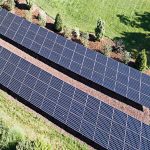For nearly twenty years now, Austin has been one of the fastest-growing cities in the country. Hundreds of new arrivals show up every day in the capital of Texas, in fact, seeking the enviable weather, great food, and other attractions of what many recognize as the Live Music Capital of the World. With so much growth going on, of course, comes plenty of construction, too, meaning that the state of Construction Engineering in Austin is healthy indeed.
That fact makes itself evident in a number of ways. Thirty or so years ago, many companies that specialized in this kind of engineering put down their headquarters in Dallas, Houston, or even San Antonio, sending engineers and crews to Austin only when they were called for. While trips of several hours or so are possible to justify for many projects, in others this meant that arranging for Construction Engineering in Austin was more expensive and difficult than it needed to be.
Today, this is rarely the case. Quite a few companies like Baker-Aicklen now call Austin their home base, sometimes even to the point of reversing the previous arrangements with regard to the state’s other, larger cities. Quite a few more also now maintain fully staffed satellite offices in the city, once again making it much easier and more cost-effective to arrange for such services.
With so much construction and growth happening in and around Austin, the demand for those offerings could hardly be higher. On Austin’s rapidly growing west side, for example, cities like Bee Caves and Cedar Park regularly host major surveying and mapping projects, as developers strive to understand how best to take advantage of their parcels. On the city’s east side, where growth often takes the form of replacing old buildings with new ones, projects of a different but equally important sort are the norm.
As Austin is only expected to keep on growing at this impressive pace, it seems likely that even more providers of these kinds of services will set up shop there. While some believe that Austin is bound to hit something of a wall as problems associated with growth mount, even the most skeptical put that point decades off.





